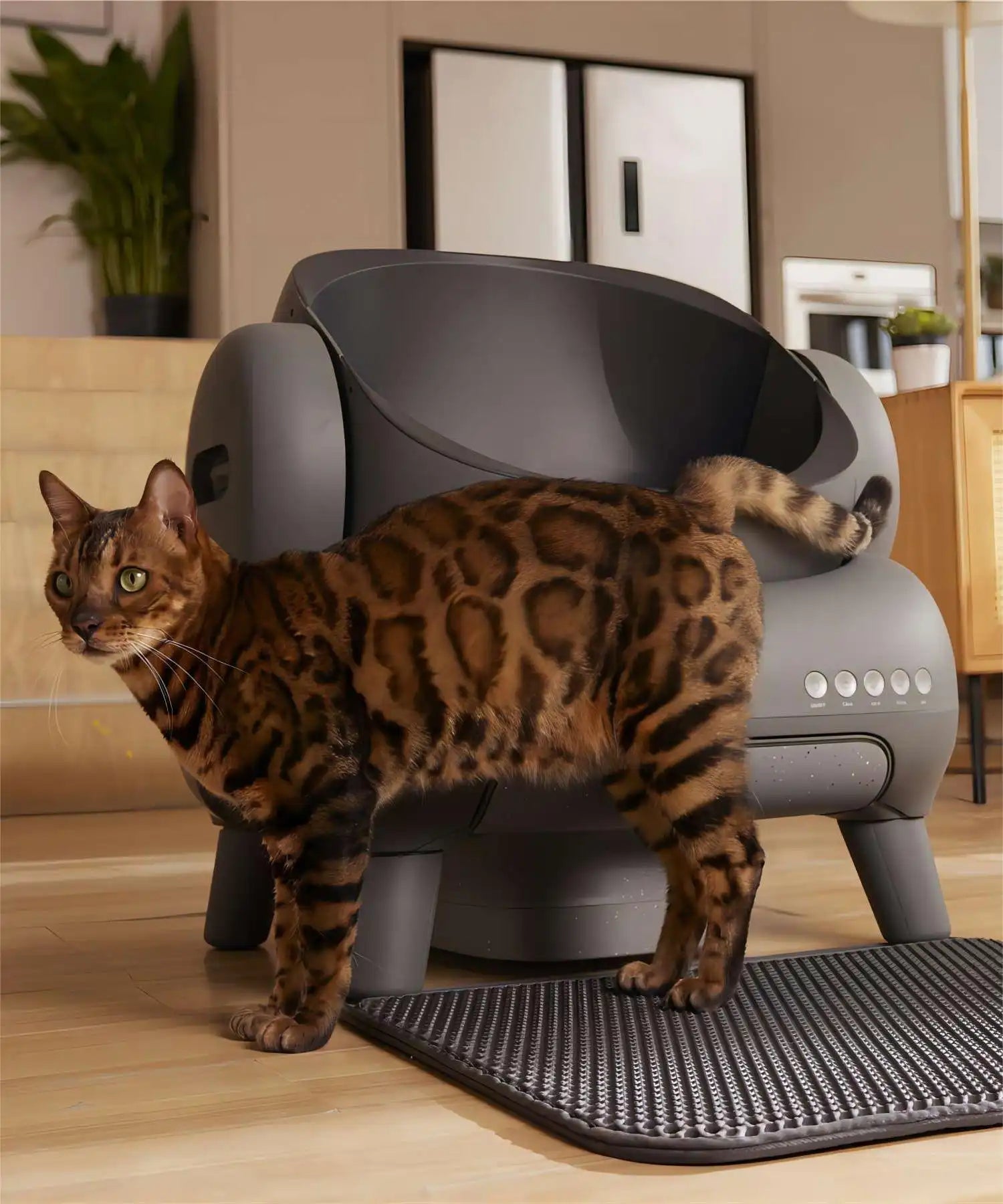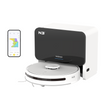
In everyday life, many cat owners might encounter a puzzling and slightly embarrassing issue: your cat, who usually uses the litter box, suddenly starts pooping outside of it. This behavior change not only troubles owners but may also indicate subtle shifts in the cat's health or emotional state. Let’s explore why your cat might be pooping outside the litter box and how to solve it.
Litter Box Issues
1. Dirty Litter Box
Cats are very clean animals. If the litter box is left uncleaned for too long, with excessive waste or clumped litter, cats might feel uncomfortable and refuse to use it.
Regularly cleaning the litter box to keep it odor-free is essential to prevent this issue.
If you have multiple cats or find it challenging to maintain cleanliness, consider using an self cleaning litter box. The Neakasa M1 automatic litter box, for example, can automatically sift waste and clumps after a few minutes, keeping the litter box clean at all times.
2. Unfavorable Type of Litter
Every cat has different preferences for litter. Some cats prefer fine, soft and scented litter, while others like larger granules or unscented litter. If you suddenly change the type or brand of litter, your cat might not adjust well and refuse to use it.
Try reverting to the original litter or gradually transition to the new litter and observe your cat’s reaction. Dust-free, fast-clumping litter is better for your cat’s respiratory and urinary health.
3. Unsuitable Litter Box Location
The placement of the litter box is important. If it’s in a high-traffic, noisy, or hard-to-reach area, cats might refuse to use it due to a lack of privacy or a sense of security.
Place the litter box in a quiet, ventilated corner that is easy for the cat to enter and exit to solve this issue. Note that it is best not to place the litter box too close to the food and water bowls.
4. Inappropriate Litter Box Size
Cats can grow sneakily, and the small litter box from their kitten days may no longer meet their needs. A box that's too small can make it hard for cats to relieve themselves, leading them to poop next to it.
This might be why your previously well-behaved cat has recently been “acting up.” A larger litter box can solve this problem.
Health or Medical Issues
These health issues are rare but do occur, and in serious medical conditions, a vet's attention is necessary.
1. Digestive System Problems
A sudden change in a cat's toilet habits might signal a digestive system issue. Conditions like constipation, diarrhea, or gastroenteritis can make a cat uncomfortable and lead to pooping in other places.
Check the appearance, color, and smell of your cat’s feces, and if there are abnormalities, see a vet promptly.
2. Anal Gland Problems
Cats have unique glands that secrete a special-smelling liquid for marking territory or attracting mates. If these glands become blocked or inflamed, cats may avoid the litter box due to pain or discomfort.
Regularly expressing your cat's anal glands to keep them clear is an effective prevention method.
3. Joint or Bone Problems
As cats age, they may develop arthritis or brittle bones, making it hard for them to get in and out of the litter box.
Providing a box with a lower entrance and more space or using aids like steps or ramps can help.

Behavioral or Psychological Issues
1. Behavioral Habits
Pooping outside the litter box might result from a lack of proper training or guidance. If owners do not provide enough instruction or correction, cats might choose to poop outside.
Begin guiding and training your cat when it is young to form correct habits.
2. Anxiety or Stress
Cats are sensitive creatures, and sudden environmental changes (like moving house or a new family member) can cause anxiety or unease, leading to behavior issues.
Providing a stable, quiet environment and increasing interaction and reassurance can help alleviate stress.
3. Territorial Marking
Cats are naturally territorial and use waste to mark their boundaries. If they feel their territory is threatened or want to expand it, they may poop outside the box to assert dominance.
To solve this, ensure a stable home environment, avoid excessive external stimuli, and provide enough toys and climbing structures to distract them and reduce marking behavior.
4. Seeking Attention
Sometimes, cats poop in noticeable spots as a way to get their owner's attention.
If the owner has upset the cat, it may retaliate by avoiding the litter box. Owners should calm their cat’s emotions without scolding.
This behavior is more common when cats feel lonely or ignored. Increasing interaction time and giving your cat plenty of love and companionship can reduce this behavior. Positive training methods can guide your cat to start moving to using the litter box and use the litter box properly.
Conclusion
In conclusion, when your cat is suddenly pooping outside the litter box, there may be multiple reasons behind it. As responsible pet owners, we must carefully observe, patiently analyze, and address the specific causes with appropriate solutions. By doing so, we can create a more comfortable and healthy living environment for our cats and let them feel comfortable and happy.

















Leave a comment
This site is protected by reCAPTCHA and the Google Privacy Policy and Terms of Service apply.